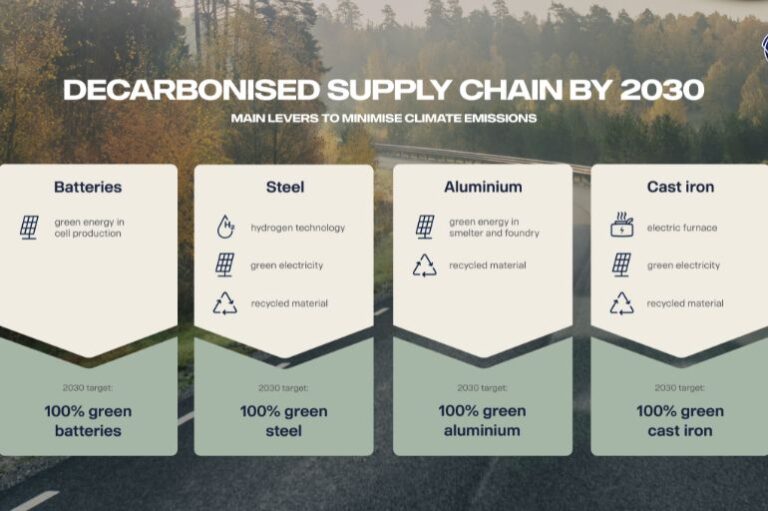Determined to use its spending power to drive the shift towards a sustainable transport system, Scania now turns its supply chain decarbonisation target into mandatory purchasing requirements.
“We are excited to announce this transformative move, prepared in close collaboration with our suppliers and partners. Implementing green purchasing requirements is both a question of making sustainable transport a reality and ensuring access to low-carbon material in a rapidly increasing competition”, says Christian Levin, CEO at Scania.
Scania has introduced an industry-leading strategy to significantly remove supply chain emissions. By 2030, the company targets 100 percent green purchases of steel, batteries, aluminium and cast iron for its European operations.
These four hotspots constitute around 80 percent of carbon emissions arising from Scania’s production materials. Scania’s definition of “green” requires eliminating the main sources of emissions by utilising new technologies, green electricity and/or recycled material. In batteries, for example, access to green energy in production is decisive. In flat steel production, replacing coal with green hydrogen is key.
Now, as arguably the first company in the industry, Scania implements these levers as mandatory purchasing requirements. Requirements on technologies mentioned will be on the table in negotiations of future contracts as well as in reviews of existing ones regarding deliveries of batteries, steel, aluminium and cast iron for Scania’s European production.
Supplier engagement is foundational for preparedness and success in the green transition, and important progress is being made. This spring, Scania placed its first order of green steel from H2 Green Steel. Mid-November, a joint target was announced with SSAB to decarbonise all current steel deliveries in 2030. Green steel supplies for Scania’s European production are targeted to start in 2026. When it comes to batteries, Scania and Northvolt have developed a battery cell specifically designed for heavy-duty transportation with world-class performance and a uniquely low carbon footprint.
“We are now working on extending the scope of the decarbonisation target, so that the strategy eventually will cover the entire global supply chain”, says Christian Levin.






